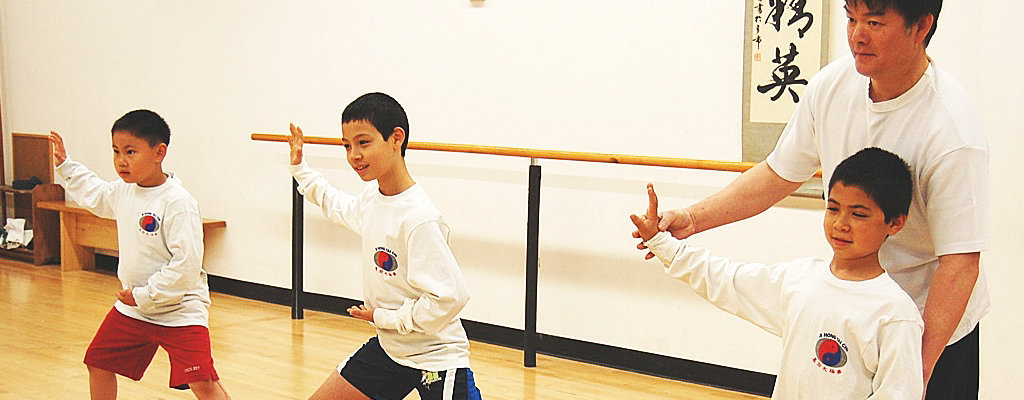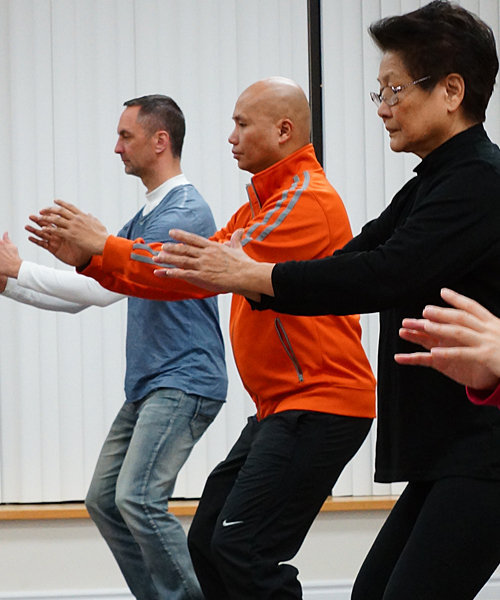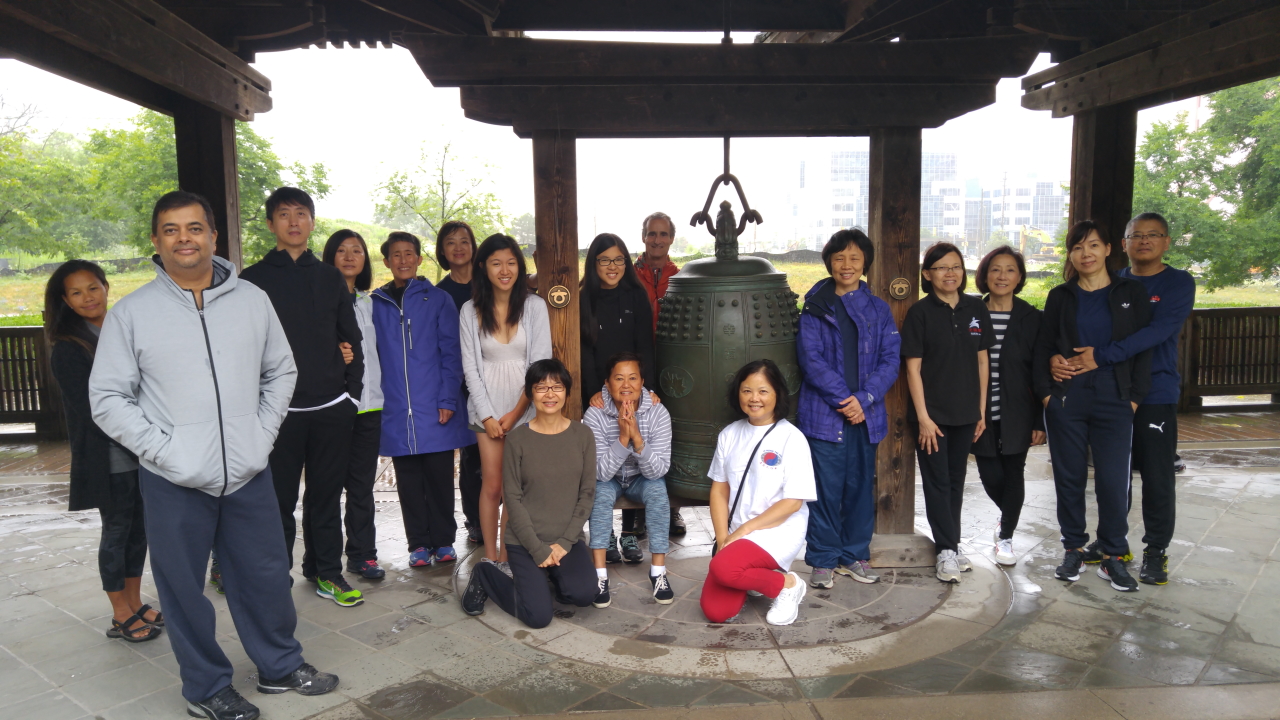If you are considering what everyone in the family can do this coming Family Day, consider tai chi also known as taiji quan. Tai Chi is a form of exercise that has been widely adopted around the world. It originated from China where it became popular when it was promoted as a way to help the people stay healthy throughout life and well into old age. The Chinese approach to health care starts with prevention so having a form of exercise to help people maintain a high quality of life while aging was the key to looking after the people.
Today, Tai Chi is practiced by millions of people worldwide. Some people start as young as 5 years old but there are also many people who are 85 years old and older who are continually practicing. Tai Chi spans the generations found in many Asian as well as other families.
Tai Chi for the Whole Family
Tai chi is appropriate for the whole family and people of all ages because of its intentionally focused and slow movement. The numerous health benefits of tai chi have been vetted by extensive research. The multitude of benefits that come from Tai Chi practice is so wide ranging that it benefits people at every age and over time as each of our body’s needs evolve with the different stages at different ages.
Here are some of the key benefits:
- Improves balance and reduces incidences of falling
- Improves posture for better body alignment and reduced muscle imbalances or pain
- Low impact work out that provides cardio benefits
- Increases mental and physical engagement
- Reduces stress with slow movements and the focused mental engagement
Tai Chi for the Younger Family Members

Whether you have little ones interested in martial arts or a young person who finds it difficult to get into highly physical activities, Tai Chi offers some amazing benefits for young people.
For those who start out young, tai chi classes focus on the physical challenges and athletic development. Having had two boys who grew up learning wushu (Chinese martial art), Sifu May is well versed in what young people need to learn and remain interested in tai chi.
Younger participants are typically encouraged to engage in the Chen Style Tai Chi form. It is more dynamic and physically challenging with its low squats, powerful bursts and large robust limb movements. This form encourages increased strengthening and stretching of the lower limbs as well as the dantian or core strength. This demanding form is ideal for the growing and active bodies of young people while keeping them engaged and interested.
Maintaining the 5 bows stance of the body allows the tai chi martial artist to maintain the strongest stance possible while minimizing the chance of being knocked over by external forces or by a tai chi partner during an interactive exchange in class. Not only does this improve the balance of the person practicing tai chi but it also reinforces proper postural habits. Proper posture is key for young people to establish at an early age.
Of course, any type of martial arts training requires a discipline to learn movements but also to control the mind and body through the fluid and flawless execution of these movements. For many young people, this is a great way to improve awareness of their physical bodies and the movements. So, whether your child is a burgeoning athlete or a child who is clumsy and could use a better awareness of their own bodies, tai chi is a great way for them to strengthen as well as grow confidence in their own body.
And, of course, there is the appeal of learning tai chi because it is a martial art. For many young kids, there is a huge appeal in becoming a martial arts expert and learning to handle a weapon safely as well as adeptly.
Tai Chi for the Adult Family Members
As the parent, participating in your own class while waiting on a younger family member is a great way to address some of our own adult concerns such as reducing stress from day to day life. Unlike other forms of exercise, it is impossible to practice tai chi without being fully engaged in thinking about your entire body and where your hands, feet, legs and head will be moving next as well as the final direction that they will face. There is no room for the mind to wander while participating in tai chi
It is this demand for complete attention that gives tai chi the nickname as being the “moving meditation” of exercises. It is practiced slowly so that it forces people to think of all the details of each movement but the slowness also provides part of its meditative qualities.
When we approach middle age, we constantly have to balance our family as well as work lives. Our focus moves to deeper and more mindful aspects of tai chi such as the concept of Yin and Yang and what it means to have balance. Not just the kind of balance that prevents us from falling but in the use of our bodies to push or pull. In the advanced Push Hands class, your awareness of balance extends beyond your own body and includes your partner’s physical space. You are therefore actively listening and constantly adjusting to maintain the Yin/ Yang of the partnership.
Ultimately, learning how to move from an internal intention is a very important part of the tai chi growth path. Where children learn to mimic the movements with amazing results, when we advance as adults, we learn the internal intention behind the advance concepts of tai chi movements. We learn to practice how controlling our internal intention affects our external movements. We focus on what’s important about intention and we do not let the smaller external or unimportant stuff distract us from intention.
Tai Chi for Family Members Beyond Middle Age

As we reach our 40’s and 50’s and beyond, our concern starts to shift towards aging gracefully and avoiding illnesses typically developed later in life. We want to remain physically capable and fit instead of aging prematurely. Tai chi is well known for preventing and alleviating the symptoms of diabetes, high blood pressure, Parkinson’s, osteoarthritis and other pathologies.
In addition, many people recovering from heart surgery or other injuries are still able to practice tai chi when other high impact work outs would not be appropriate. So, whether we are limited in what we can do and need to progress towards an ability to perform more intensive activities or we are looking for other ways to return balance to our bodies, tai chi has proven to be effective.
Tai chi helps people remain fit and maintain their core strength without the kind of high impact activities which may cause backs, knees, hips and other joints to deteriorate prematurely. At this age, our bodies are not able to recover seemingly instantaneously as our bodies did when we were in our 20’s. Tai chi is a slower moving and gentle practice which raises our heart rates giving us a good cardio work out as well. It seems counterintuitive that a slow moving activity can raise our heart rate but tai chi does improve our circulation significantly and people feel their core temperature rise after just a one hour class.
Tai Chi for Elderly Family Members
As we age further, it becomes difficult to find an activity that we can continue to do well and consistently. For people in their senior years, there are many benefits of learning and participating in tai chi. After a fall, seniors tend to continue to experience a wide variety of physical ailments from which they are slow to recover. After a single fall, many seniors find their health deteriorates significantly. However, maintaining good health, a strong core and posture as well as an ability to re-balance their bodies quickly allows elderly people to avoid a fall. This makes a huge difference in the upcoming quality of life in a senior.
Tai chi is not only physically beneficial but the mental challenges and the social nature of practicing tai chi helps to alleviate some of the top mental conditions seniors face today. The conditions of most concern to seniors include depression and dementia. Research shows that the people who practice tai chi tend to avoid these conditions or reduce their symptoms. Part of the reason is that tai chi helps improve the social aspects of our seniors’ lives because tai chi is practiced in groups with friends, families and people of all ages.
Finally, tai chi offers physical and mental challenges for seniors while giving them a sense of accomplishment. We all need goals and objectives which is the same for the elderly where a sense of accomplishment and purpose helps the mental state and well-being of all our grandmothers and grandfathers everywhere.
Celebrate Family Day with a Visit to Our Tai Chi Studio
So, if you are still not sure that tai chi is for the whole family, we invite you to come down to our Mississauga tai chi studio to experience it for yourself and meet people who are having a fun and challenging experience with tai chi.
Looking forward to seeing you soon!


For child and health